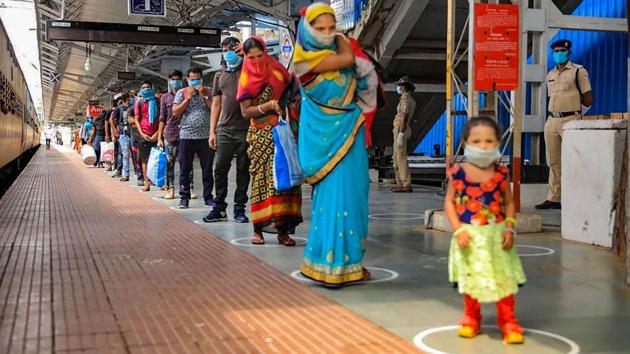A ‘new normal’ is in the offing. Ensure a balance| Analysis
Prioritise controlling the spread of Covid-19, strengthening health services, and supporting each other to stay healthy
The World Health Organization (WHO) Southeast Asia region is entering a new phase in its pandemic response. In recent weeks, the spread of the coronavirus disease (Covid-19) in the region has slowed, due to the unprecedented physical distancing measures that countries implemented early and aggressively. Several member-states are now preparing to transition to a “new normal” in which social and economic life can coexist with low disease transmission. To do that effectively, countries must continue to mobilise the full power of their whole-of-government, whole-of-society approaches.

The spread of Covid-19 continues to cause disease, death and disruption. It has pushed even the most advanced health systems to the brink. The crude mortality ratio for Covid-19 is estimated to be upwards of 3%, but can change from country to country, and even within countries. Key variables include access to care and the availability of testing.
The region’s member-states must continue to take evidence-informed action and conduct careful risk assessments before deciding to wind back on public health and social measures. Due consideration must be given to the local epidemiology of Covid-19, including hotspots and clusters, and the capacity of systems and responders to find, isolate and care for cases, and quarantine contacts.
Whatever a country’s current transmission scenario, there is no doubt that we are in for a long haul. In what will be an ongoing struggle against Covid-19, the strategies of member-states must be comprehensive and cover immediate and long-term needs. Three priorities must chart the path ahead: Control and suppression of spread, strengthening and maintaining health services, and supporting each other to stay safe and healthy.
To control and suppress spread, we must take the fight to the virus. Active case detection, isolation, testing and contact tracing are the main ways to control the virus. Should community transmission occur, they are vital to suppressing it. Strengthening surveillance and contact tracing, in particular, will help national and local authorities to rapidly adapt to evolving outbreaks, whether moving from one case to a cluster of cases, or from a cluster of cases to no cases.
Agility and innovation will be crucial, especially at the subnational level, across borders and with mobile populations. For areas with limited transmission, responders must focus on finding and isolating all cases, providing them with appropriate care, and tracing, quarantining and supporting all contacts. Where sustained transmission occurs, they must reduce it to manageable clusters, for which they may consider reintroducing physical distancing measures in a way that minimises negative impacts.
To strengthen health services, all countries must first protect health workers. WHO continues to work with governments, industry and the pandemic supply chain network to overcome global shortages of personal protective equipment. Health workers must be provided gowns, gloves, medical masks and eye protection required to save lives and avoid infection.
Countries must continue to expand isolation and intensive care unit capacity, while also rationalising it. By networking Covid-19 treatment facilities, health leaders and administrators can better share the burden among facilities. By implementing clear triage protocols, they will ensure that all patients with severe manifestations are provided safe, rapid admission to intensive care units. Rigorous infection prevention and control is needed to prevent health facilities from facilitating transmission.
Ensuring essential health services are maintained is vital. We must not only reduce mortality from Covid-19 itself, but also from vaccine-preventable diseases and other treatable conditions which may increase when health systems are overwhelmed. WHO will continue to support countries in the region to implement key guidelines on maintaining essential health services as they directly respond to Covid-19.
To achieve these outcomes, member-states must mobilise a whole-of-government, whole-of-society approach. Regular hand-washing, coughing or sneezing into one’s elbow, and avoiding contact with people with flu-like symptoms are crucial. So too is following local and national guidance on physical distancing. Avoid using tobacco, alcohol and other substances that impair the immune system. Support health workers and say no to stigma.
Look after your mental health and be supportive of others. It is natural to feel sad, stressed, confused, scared or angry. Helpful coping strategies include getting enough rest, exercise, eating well, avoiding harmful substances and staying in close contact with family and friends. WHO will continue to provide accessible and actionable information on coping with Covid-19-related stress and anxiety, and will support all member-states to strengthen mental health services.
We must stand together to tackle what is the greatest public health challenge of a generation. The region’s strategy to control and suppress spread, strengthen and maintain health services, and support each other to stay safe, healthy and well, will help all countries to save lives and minimise impact. Our mission is clear. Our challenge is great. Together, forward in the fight against Covid-19.






